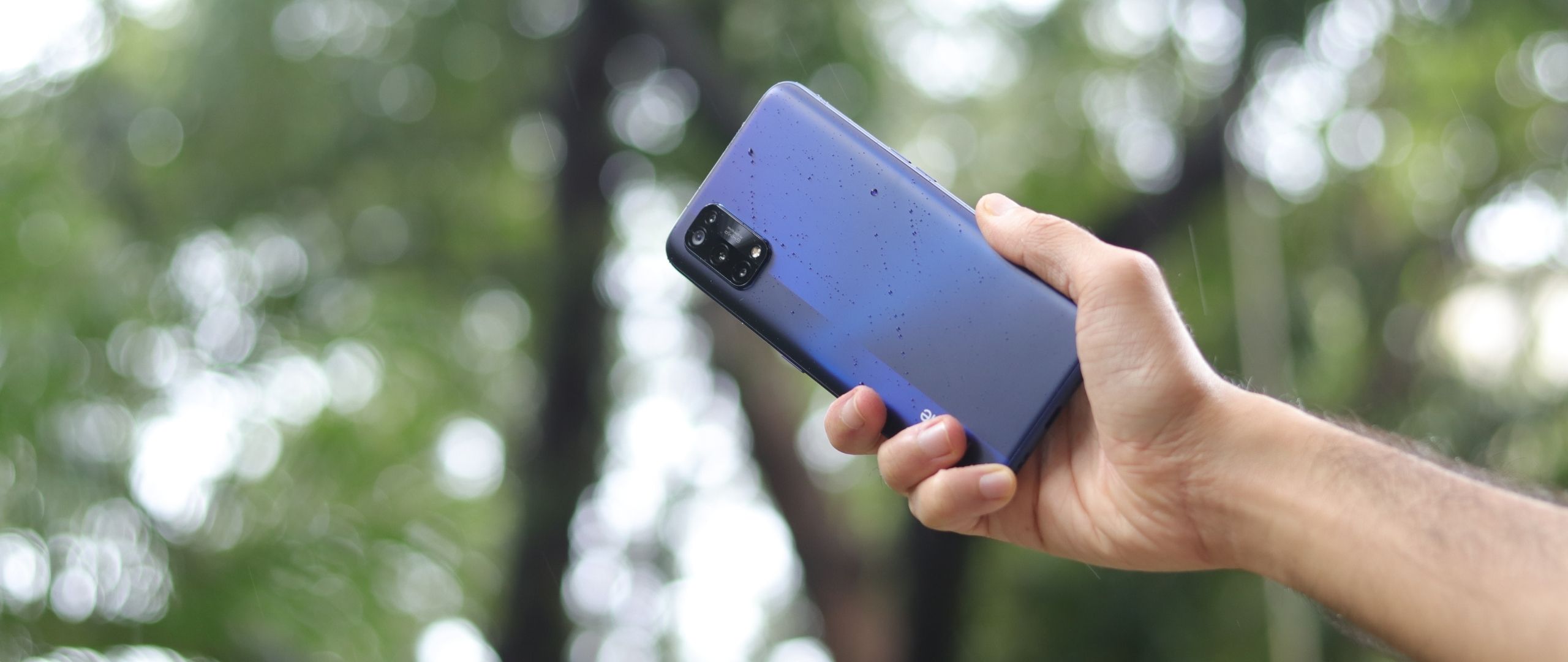TechRadar Verdict
The Realme 7 Pro has the apparent objective of being the best in the budget market segment, with features like 65W fast charging, an AMOLED display and reliable cameras. It succeeds in its mission for the most part, but it's missing a few features that most 2020 smartphones have.
Pros
- +
Very fast charging
- +
Good-looking display
- +
Great cameras
Cons
- -
Plastic back
- -
60Hz refresh rate
- -
Non-Pro sibling beats it in several ways
Why you can trust TechRadar
Two-minute review
Realme has been big in India and China for years now, but its efforts in other regions have felt a little half-hearted and confused - that's changed with the Realme 7 Pro, which - alongside the Realme 7 - feels like the company's first concerted effort to take on the budget phone market.
So the Realme 7 Pro takes on competitors from Xiaomi's Redmi line, Motorola's Moto G series and Oppo's A range - the 'cheap phone' market is a busy one and it takes a lot for a company to come out on top.
The Realme 7 Pro has a few features that could give it the edge in this competition, though each step forward comes with a step sideways.
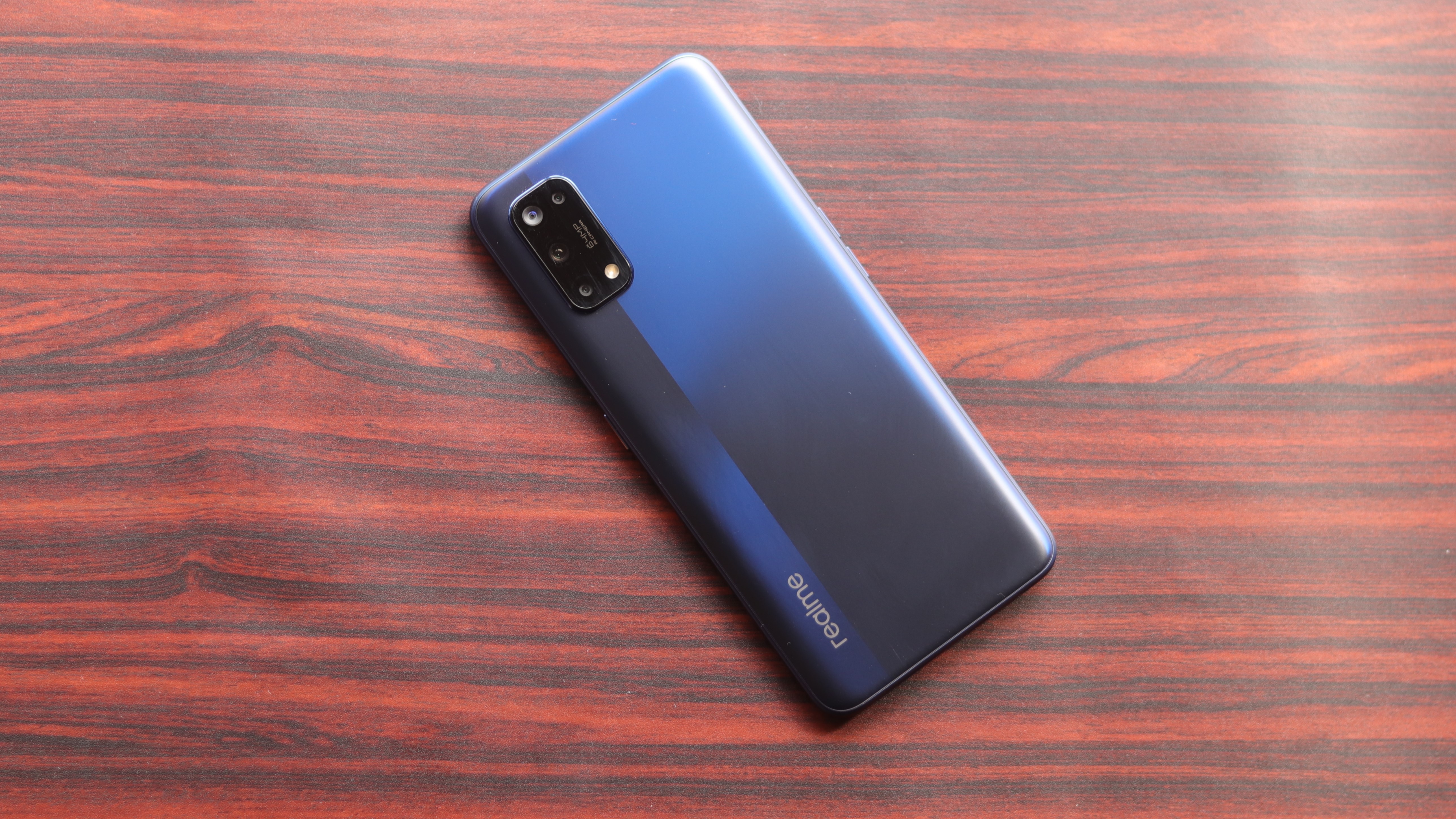
Price and release date
Design
Display
Camera
Performance
Software
Battery
Should I buy it?
For starters, the Realme 7 Pro is one of the cheapest phones with a Super AMOLED display. While it is better than its competitors visually, that comes at the cost of a standard 60Hz refresh rate - many competitors, even at this price tag, have 90Hz and 120Hz screens instead (even the standard Realme 7 has a 90Hz display).
Similarly, the Realme 7 Pro has a 64MP main camera but loses out on the telephoto lens which the Realme 6 Pro boasted. It has four rear cameras though, so is no slouch in the photography department.
Even the choice of materials seems to be behind the competition, as this is clad in plastic, but using it for hours daily rekindled our appreciation for lightweight phones.
The Realme 7 Pro also has a smaller battery than some rivals (though it's still a good size at 4,500mAh), but more than makes up for it with 65W fast charging, making it the fastest charging phone at this price point, with only a few pricier devices matching this speed.
The Realme 7 Pro successfully manages to deliver a reliable and consistent experience, making it an easy phone to recommend, just as long as you prefer the features that are here, to the features that seem to have been dropped to make way for them. Overall, it gets a strong recommendation from us.
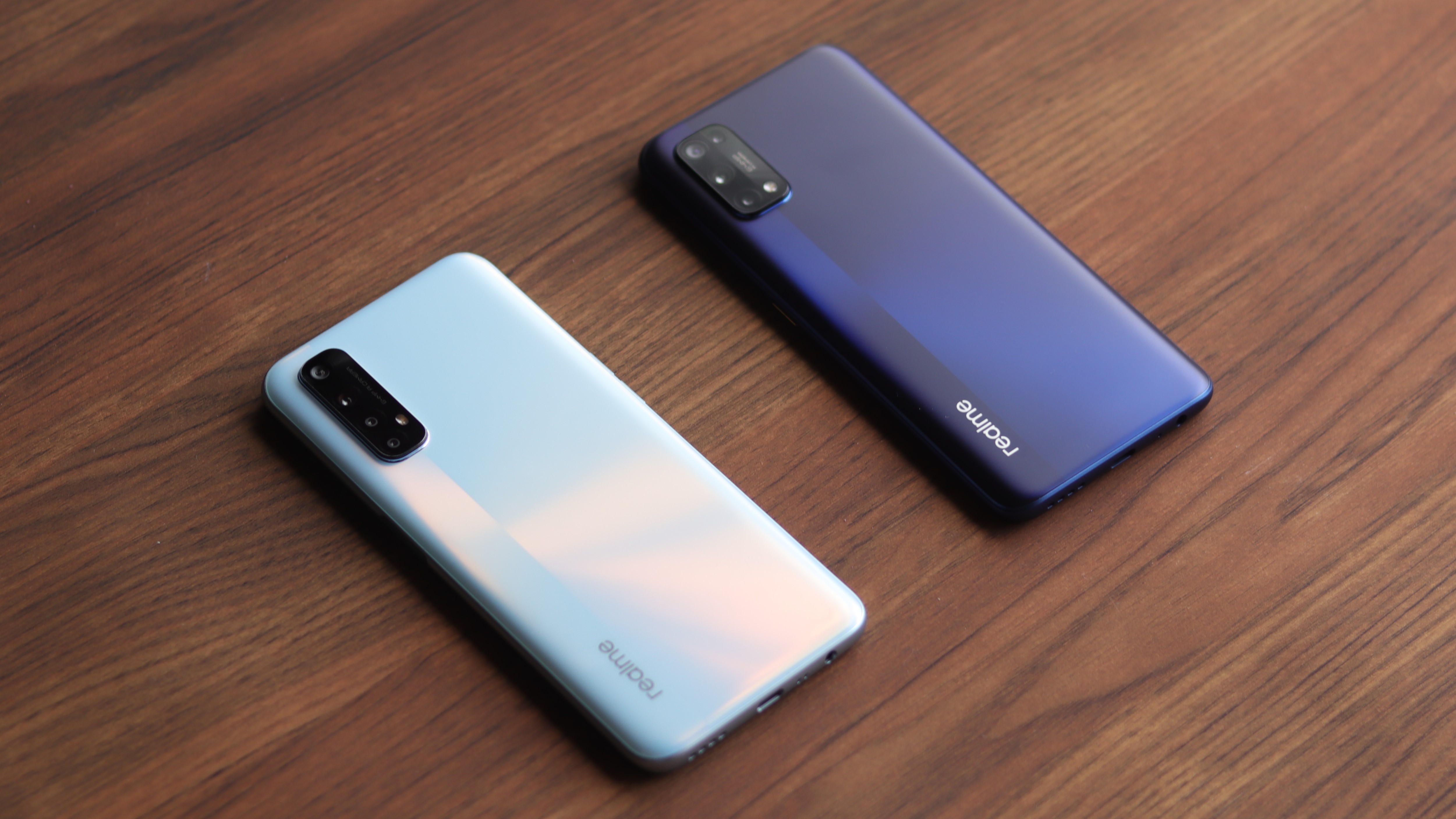
Realme 7 Pro price and release date
- Out now in the UK
- Costs £279
- No word on US or Australian availability
The Realme 7 Pro comes in just one configuration in most regions - that's 8GB of RAM and 128GB of storage, and it costs £279 in the UK.
We don't know if or when the Realme 7 Pro is coming to the US or Australia - it doesn't look likely, as while the company's CEO told us the company would possibly bring its handsets to the US at least, it doesn't sound like it'll happen too soon. Maybe the Realme 8 series will be the first.
The handset is available via the Realme website, in blue or silver versions - there's no word on carrier support for it just yet.
Design
- Plastic back
- Eye-catching two-tone finish
- Light at 182g
With each generation, Realme implements new back design ideas for its smartphones. The same is the case with the Realme 7 Pro, but this time, it is way more refined than anything else from the company.
It sports a new 'mirror split' design that asymmetrically cuts the back into two, having the same finish but in opposite directions. The result is a unique two-tone finish when seen in the correct lighting. It has a matte texture, giving it a more premium look while fighting fingerprints. We had the Mirror Blue variant which is a shade of deep royal blue, as you can tell from the pictures.
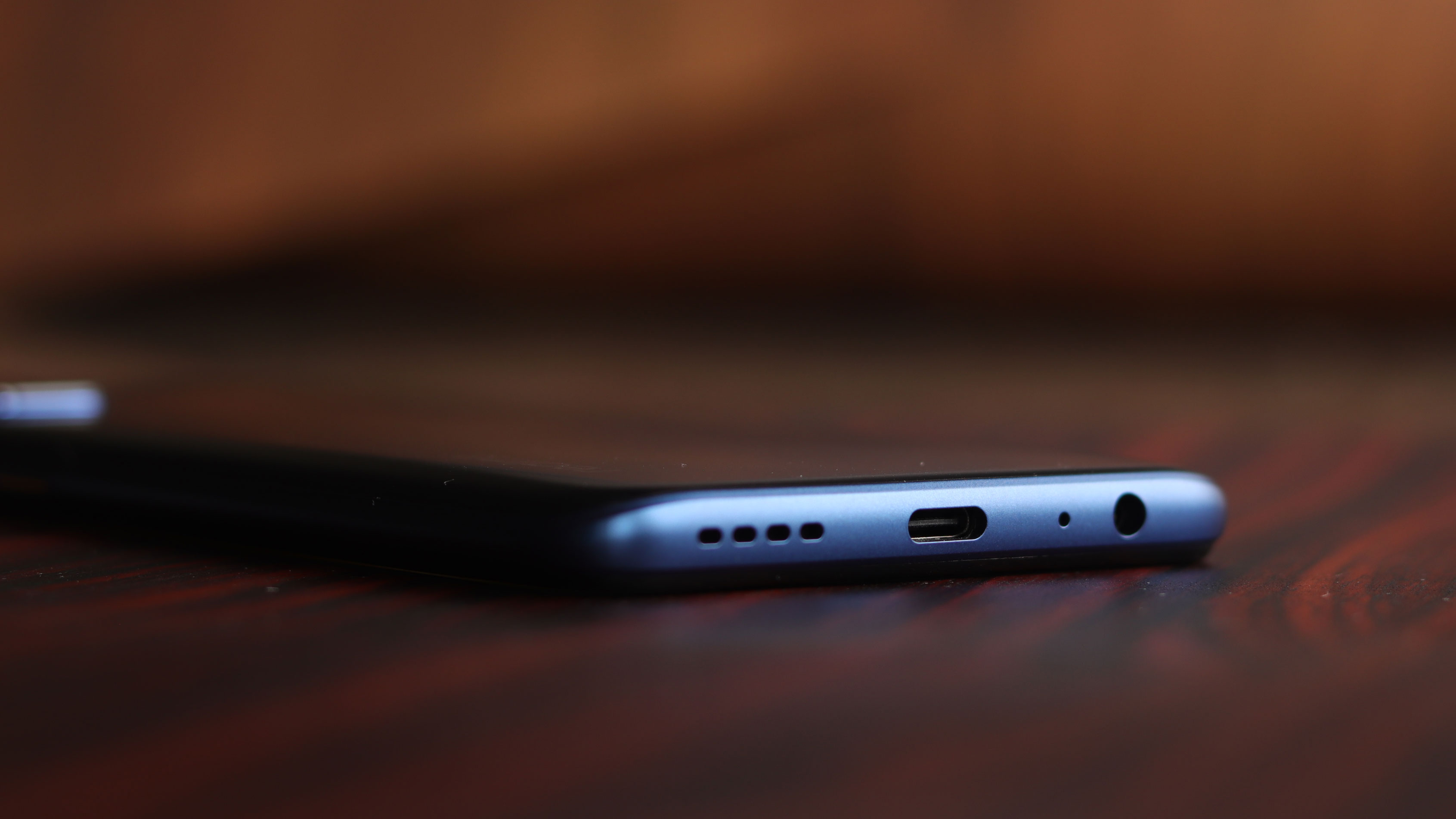
The back panel is made of polycarbonate plastic and not glass, however it doesn’t feel cheap or flimsy by any means. We’re fans of this approach as it makes the Realme 7 Pro significantly lighter than most other phones at 182 grams, without the risks of shattering that is inherent to glass. However, some might prefer a more premium-feeling glass phone.
The subtly curved back improves the ergonomics, making it one of the few truly compact and enjoyable phones to wield in today’s age of phablets. Even the power and volume buttons are conveniently placed along the center of the phone on either side, making them easy to locate without looking.
The cameras are placed in a short but wide rectangular housing in the top left corner.
Finally, there's a USB-C port here as well as a 3.5mm headphone jack, which wired audio fans will appreciate.
Display
- 6.4-inch 2,400 x 1,080 screen
- Uses Super AMOLED
- Only has a 60Hz refresh rate
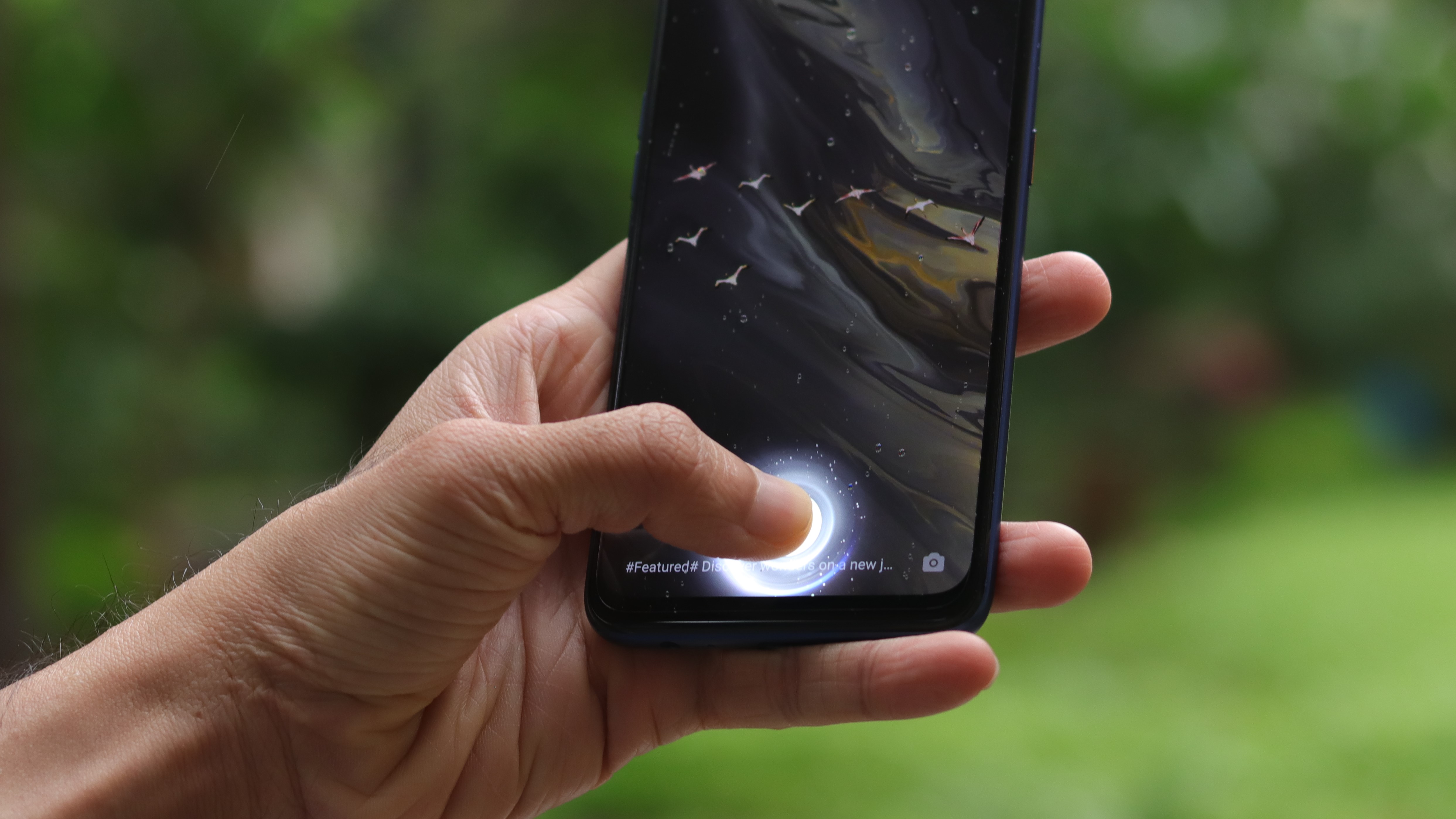
The Realme 6 series continues to be the most affordable smartphones with a high refresh rate display, while the Realme 7 Pro raises eyebrows by having a 'standard' 60Hz display instead - but those are raised eyebrows of confusion, not appreciation.
This display is a 6.4-inch Super AMOLED one with a resolution of 2,400 x 1,080, a peak brightness of 600nits, and 98% NTSC color gamut coverage. It is quite possibly the best display on a smartphone at this price point, as long as higher refresh rates are not your priority.
Owing to the Super AMOLED nature of the panel, we get perfectly inky blacks, high contrast and vivid colors. The saturation seems to be at a sweet spot too, where it doesn’t hamper the color accuracy. We had no issues using it outdoors under direct sunlight either, with ample maximum brightness.
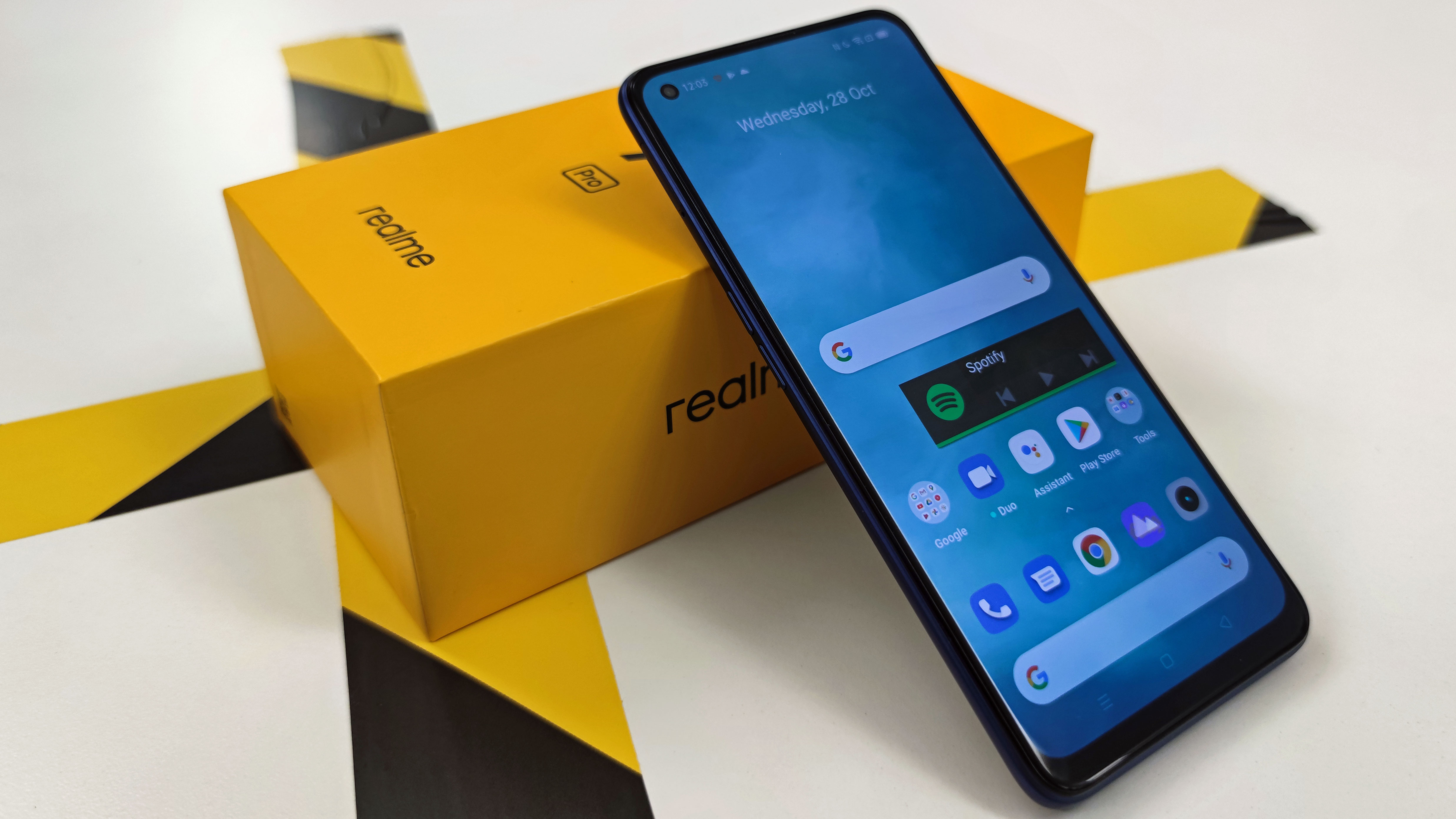
There are reasonably slim bezels on all sides of the display, resulting in a screen-to-body ratio of 90.8%. The sides are also gently curved to make swiping and holding the device feel more natural.
With a punch-hole selfie camera and an in-display fingerprint scanner too, the Realme 7 Pro includes many of the sorts of features you'd expect on higher end handsets.
Camera
- Quad-lens camera with main, ultra-wide, macro and depth sensors
- 64MP primary camera performs well
- 32MP front-facing camera
Realme can be attributed with starting the high-resolution, multiple sensor trend on budget smartphones. Now, with over a year of experience under its belt with them, the Realme 7 Pro moves to a second-gen camera stack with a flagship Sony image sensor at its heart.
The primary shooter is a 64MP f/1.8 Sony IMX682 image sensor that employs pixel-binning to produce 16MP photos. The results were way better than what we’re used to seeing for affordable phones, with great dynamic range, decent colors and ample details. It doesn’t shy away from raising the shadows to yield brighter images, but that sometimes takes a toll on the contrast.
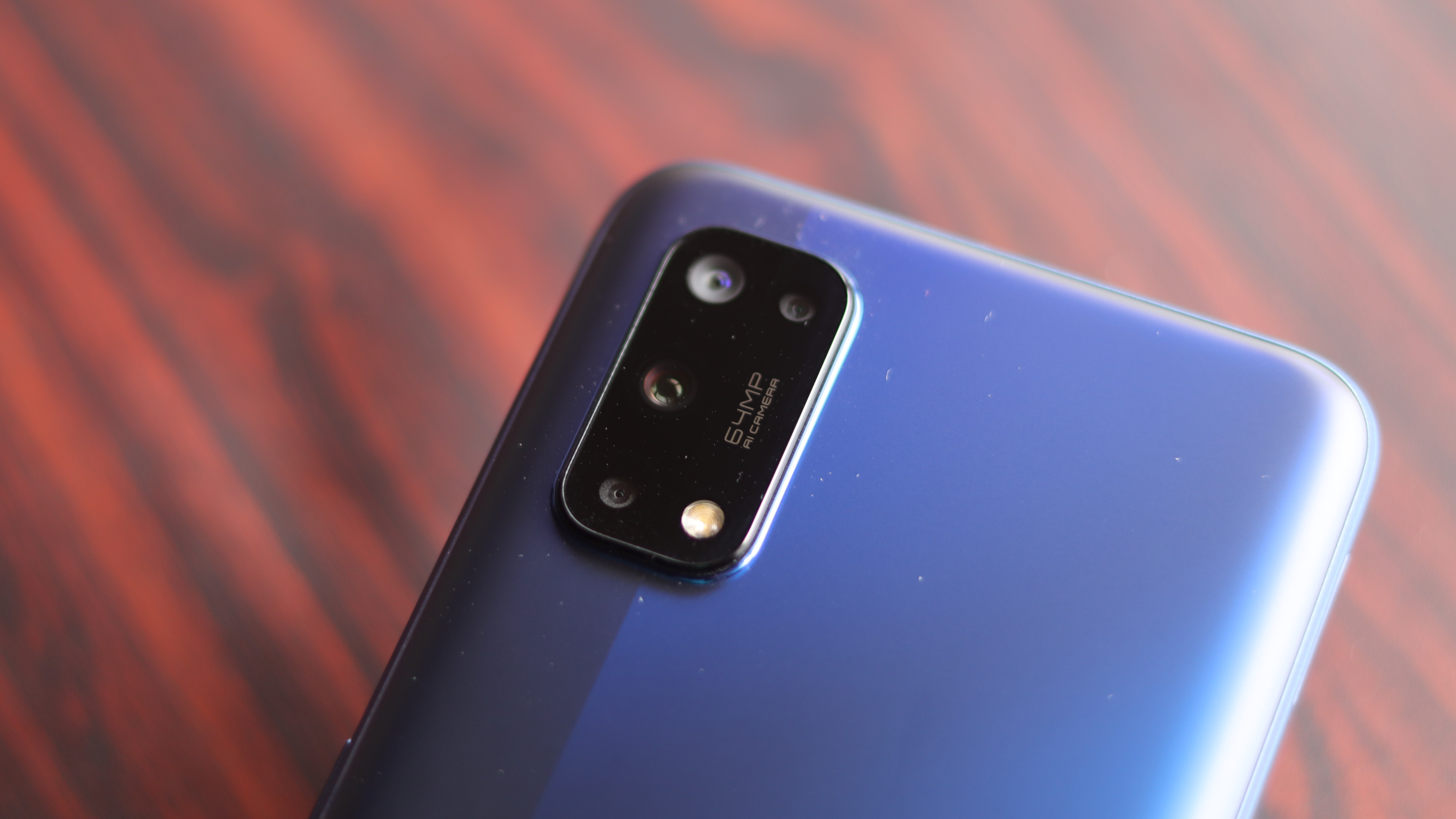
The second sensor is 8MP, paired with an ultra-wide lens, and was fairly consistent in terms of the color profile, bringing a surprising amount of sharpness when cropped in.
Low light photography via both of these lenses was exceptional too. While it takes a fraction of second to shoot and process, the resultant images are bright and clean, albeit with slightly lesser details due to over-smoothening.
The third and fourth snappers here are both 2MP, one paired with a macro lens and the other a depth sensor. The former took okay pictures, though fairly low-res ones, while the latter is used to improve standard shots.
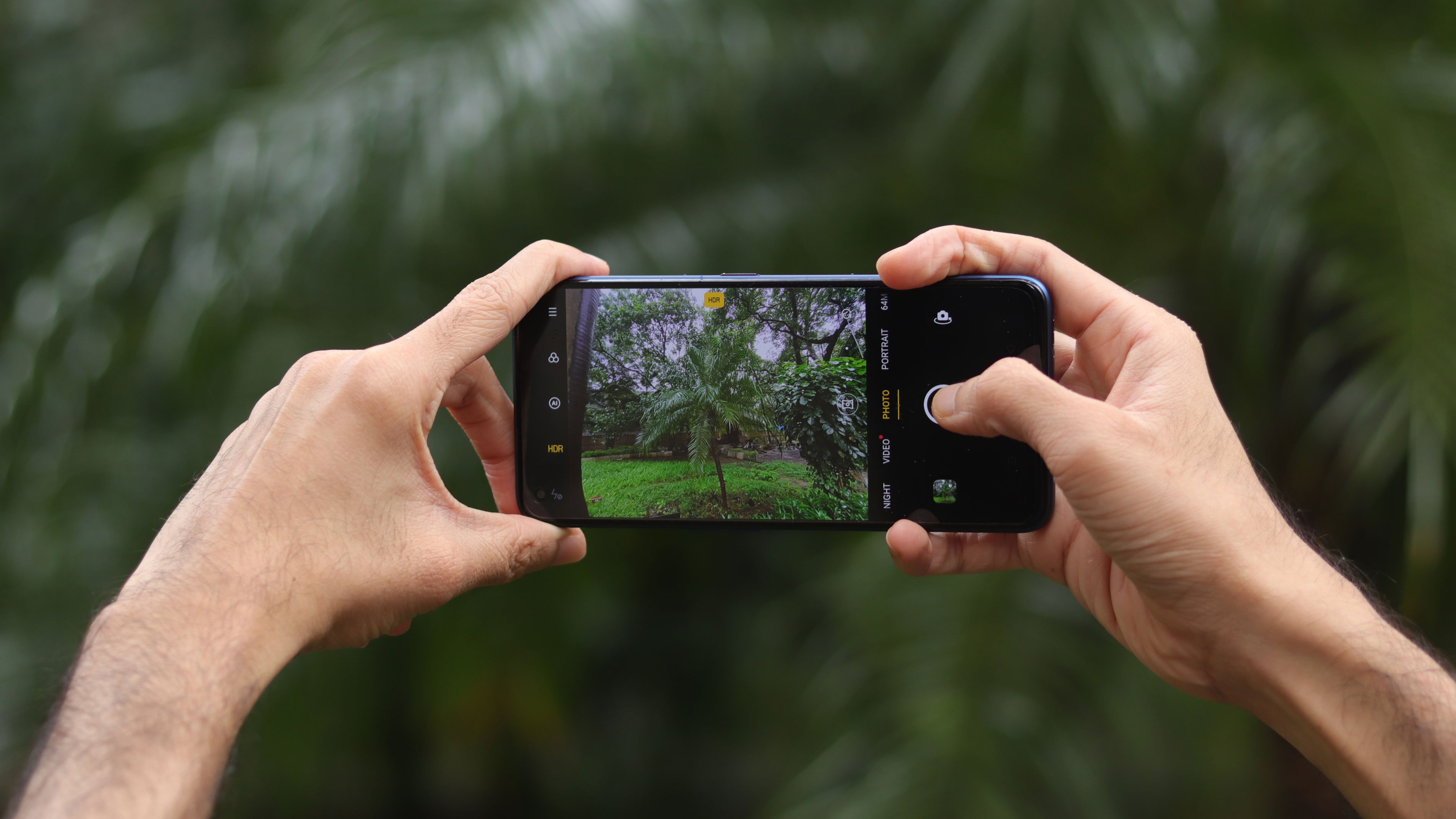
A telephoto lens would have been nice for zoom shots, but affordable phone makers tend to prioritize depth-sensing and ultra-wide snappers over these.
The Realme 7 Pro also boasts one of the most exhaustive camera packages when it comes to shooting modes - Pro Nightscape, astrophotography, ultra-steady video, night filters, portrait mode, realtor filters, AI color portrait video, and of course the usual options that exist in basically all phone camera apps. These features make smartphone photography easier and more capable.
The selfie camera here is 32MP, and took fairly good photos - if you're just going to put your snaps up on social media this is more than enough resolution for you.
Camera samples
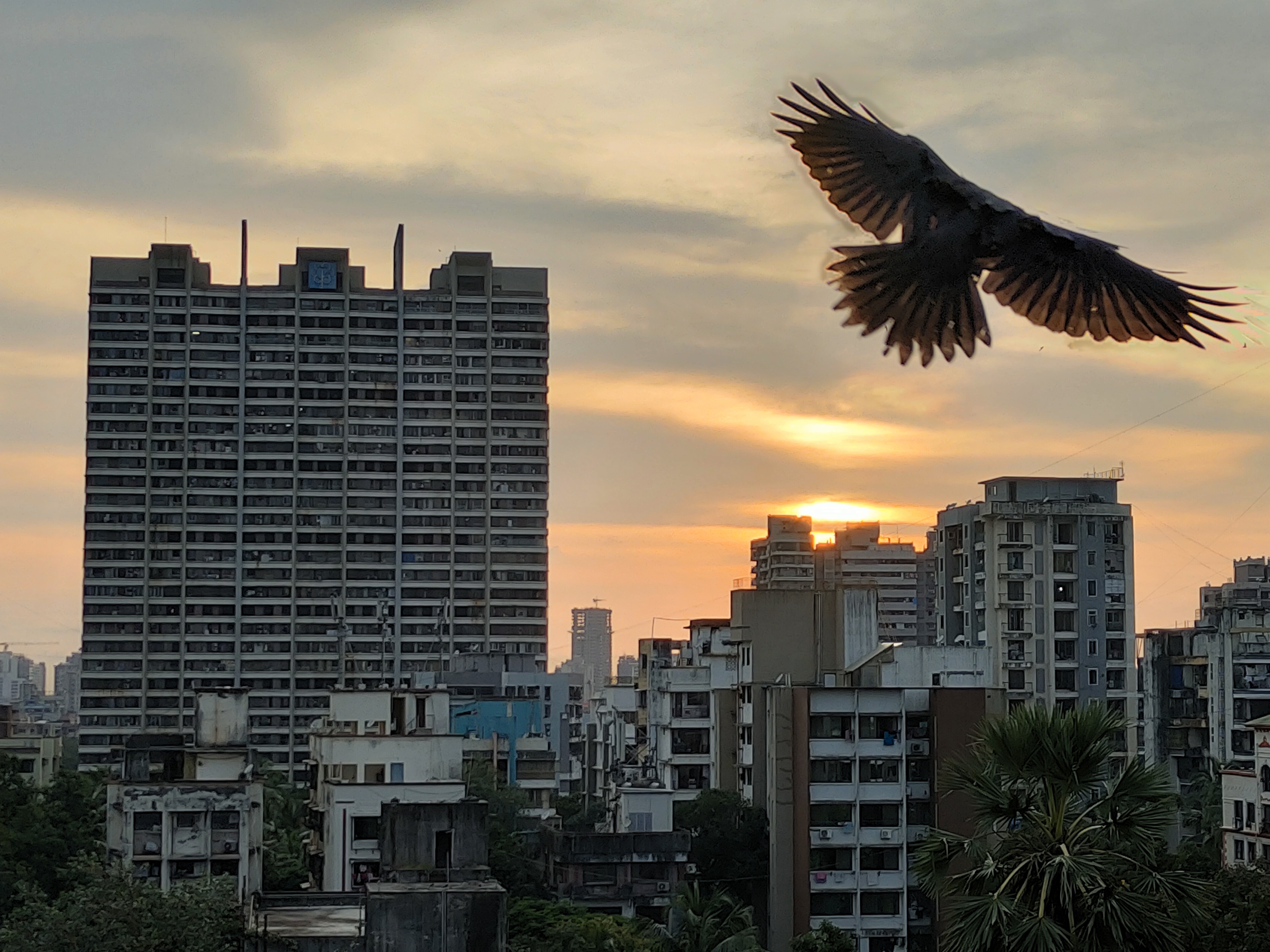
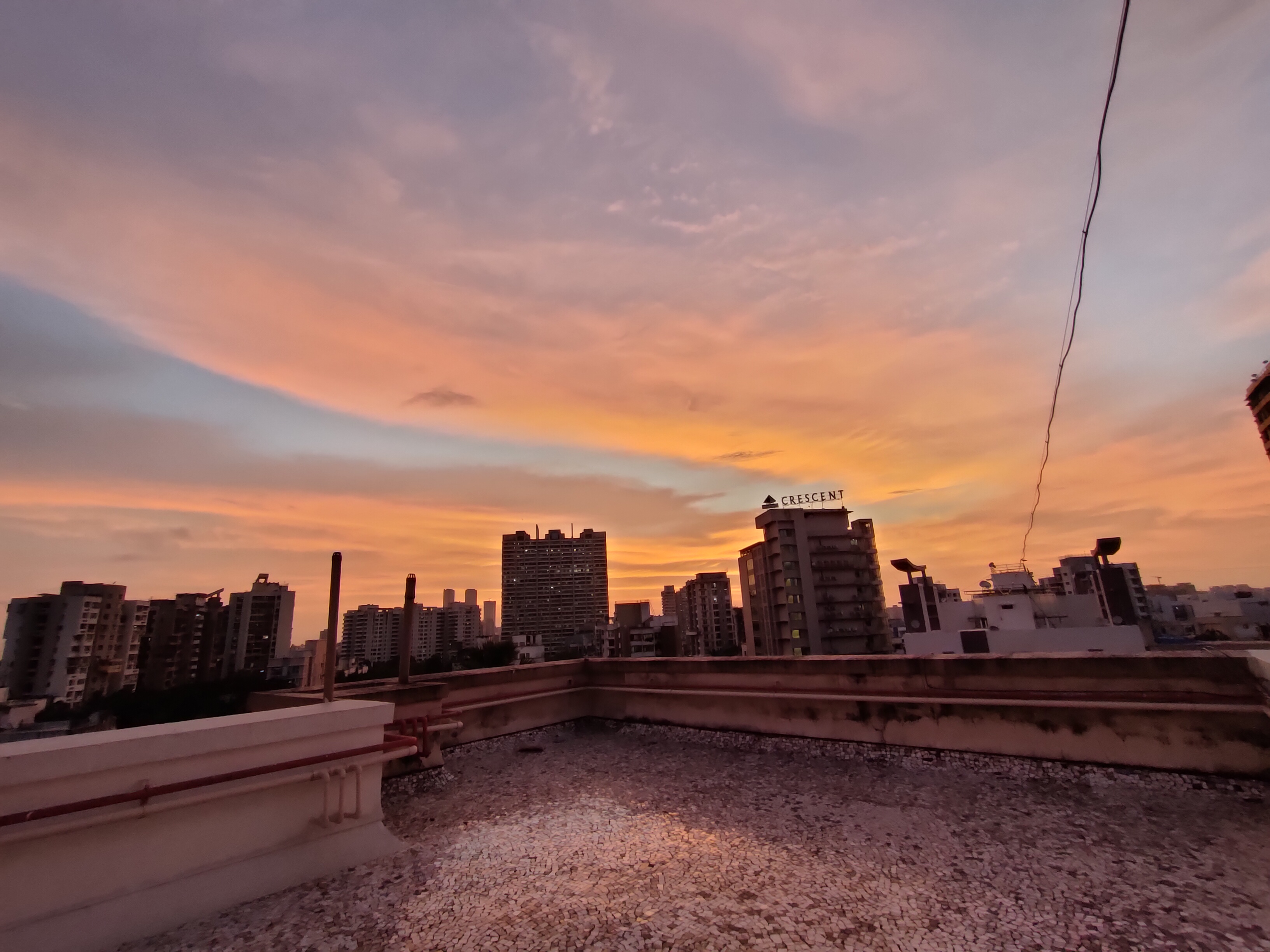
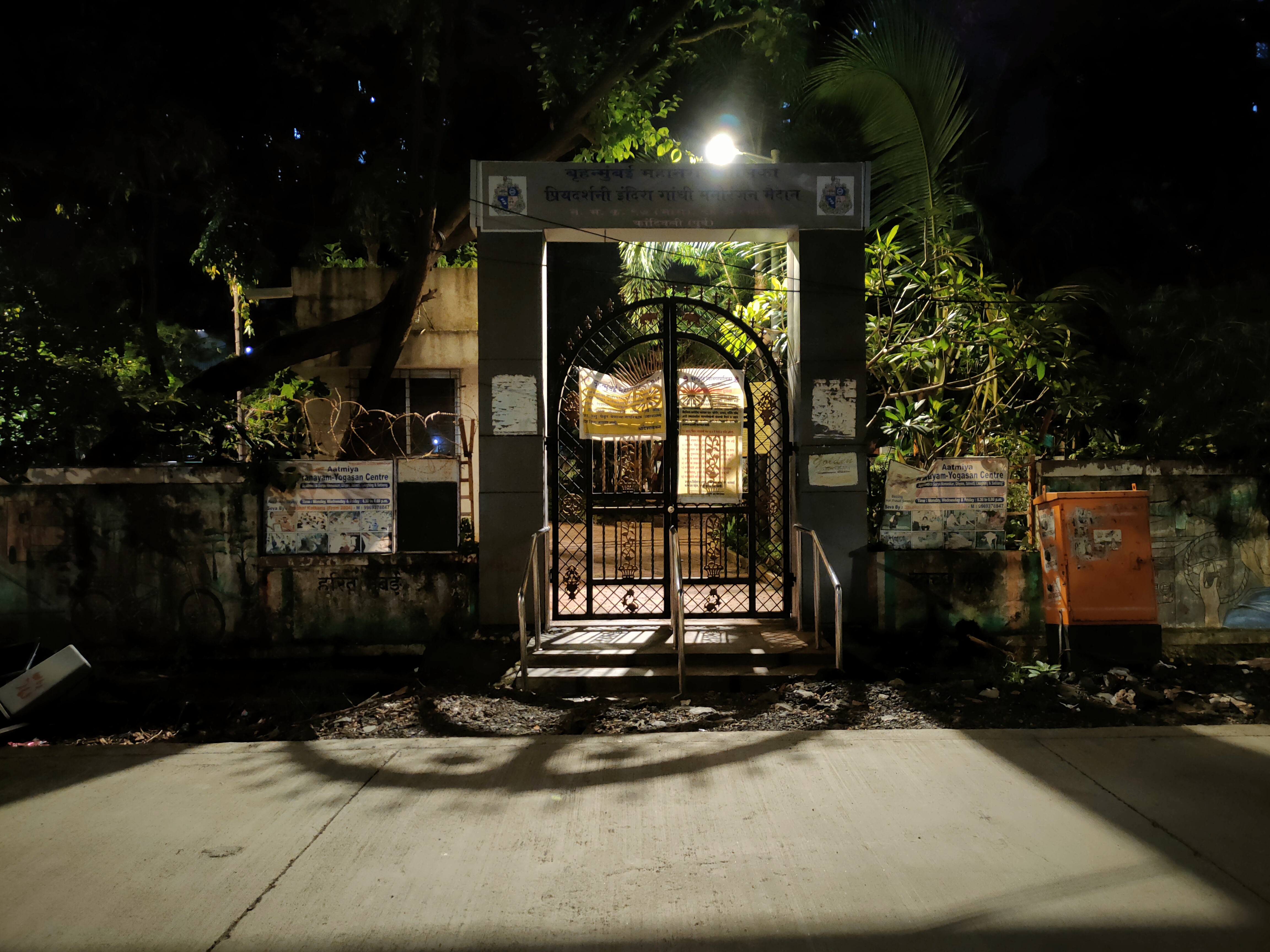
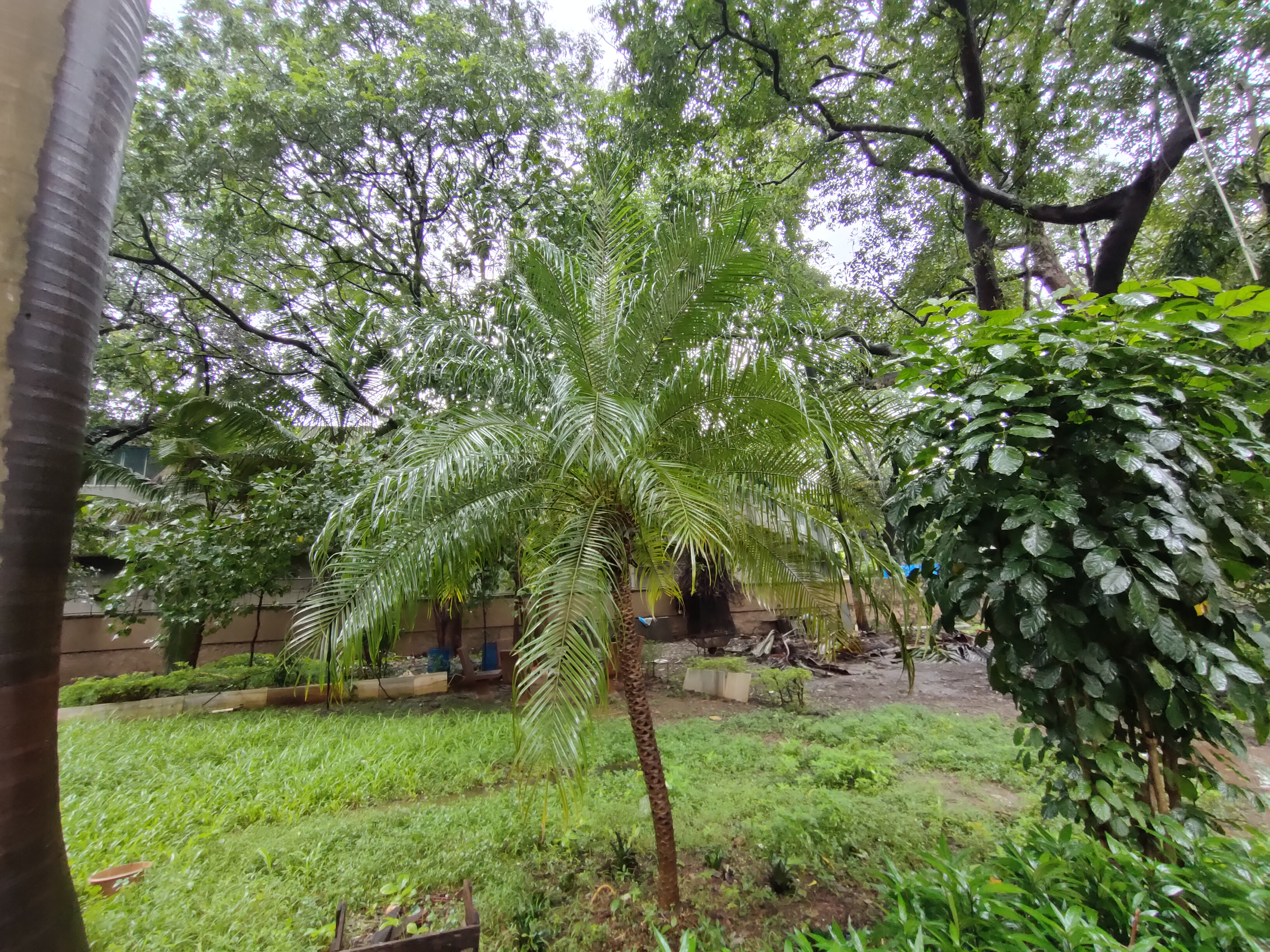

Performance and specs
- Middling Snapdragon 720G chipset
- Up to 8GB of RAM
- Smooth general performance but struggles a bit with some games
Inside the Realme 7 Pro is where things get a little ordinary, but still not bad. The handset is powered by the Snapdragon 720G chipset, which is also seen on many other budget smartphones. This is an octa-core chipset built on the 8nm process. Along with it comes the Adreno 618 GPU, up to 8GB of LPDDR4X RAM, and UFS 2.1 storage.
This is a very reliable chipset, bringing great levels of stability and efficiency for most use cases. In fact, it outperformed the MediaTek Helio G95 in most day to day uses - that's a comparable chipset that many of the 7 Pro's competitors use.
Switching between apps, loading big files, and scrolling web pages and social media were all a piece of cake for the Realme 7 Pro. You’re unlikely to face hiccups in regular use.
The same prowess carries forward to gaming as well, but some titles may be bottlenecked by the GPU’s capabilities. For example, PUBG Mobile runs at a max fps of around 45. Lighter games will run a lot better, especially those which are not very graphically intensive.
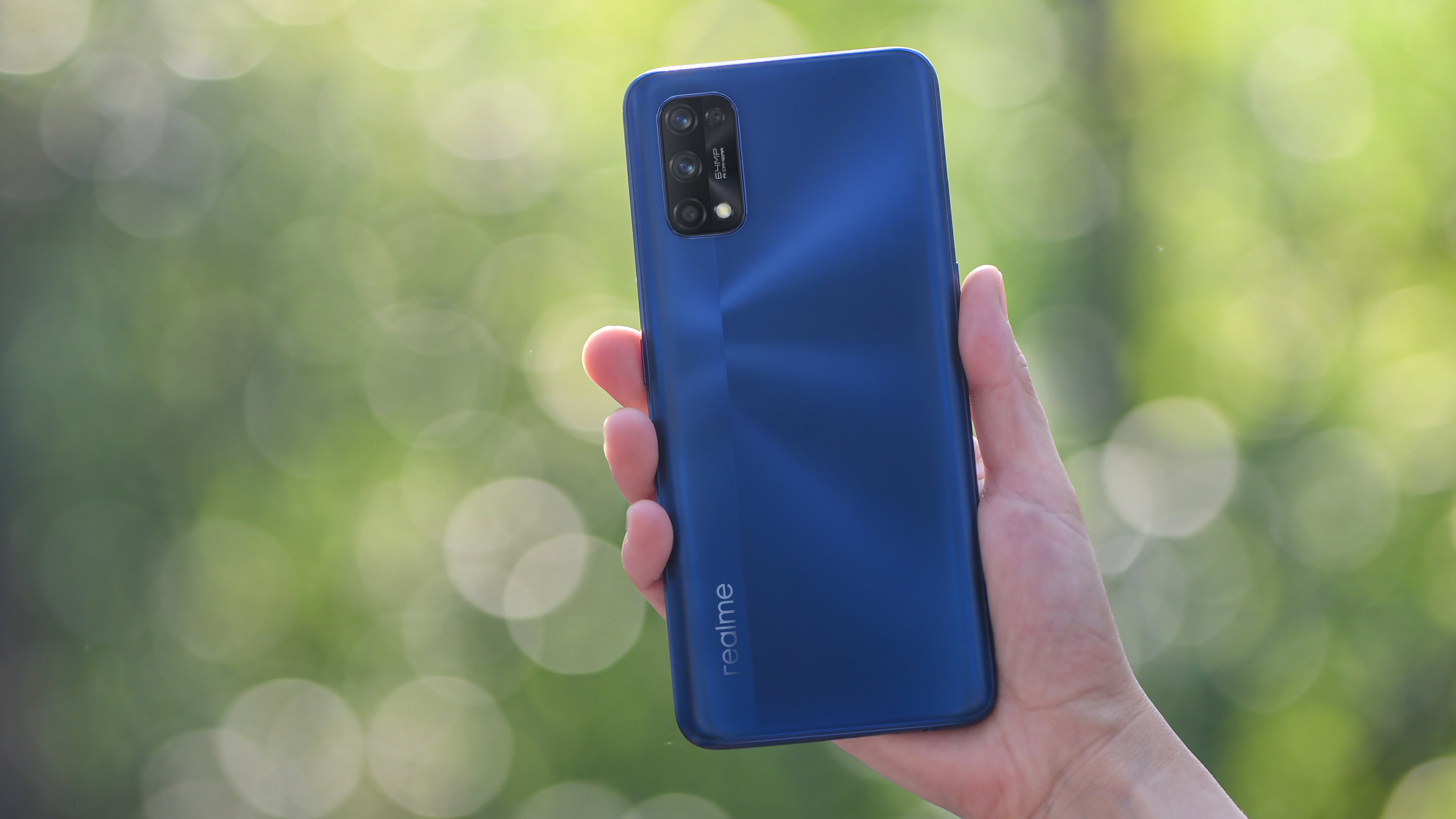
If your phone use includes a lot of gaming, you might prefer a handset powered by MediaTek’s G series, but if you don't need the absolute top graphics or framerate, the Snapdragon 720G is a good option.
Another aspect where the Realme 7 Pro stands out from the crowd is the audio performance. It is one of the few phones at its price point to offer a dual stereo speaker setup.
Split between the primary loudspeaker on the bottom and the earpiece on the top, it offers a legitimate dual-channel output which is also louder than average. It is not well balanced, but is still very enjoyable.
Software
- Runs Android 10
- Realme UI is highly customizable
The Realme 7 Pro comes running Android 10, but with Realme's own UI laid over the top.
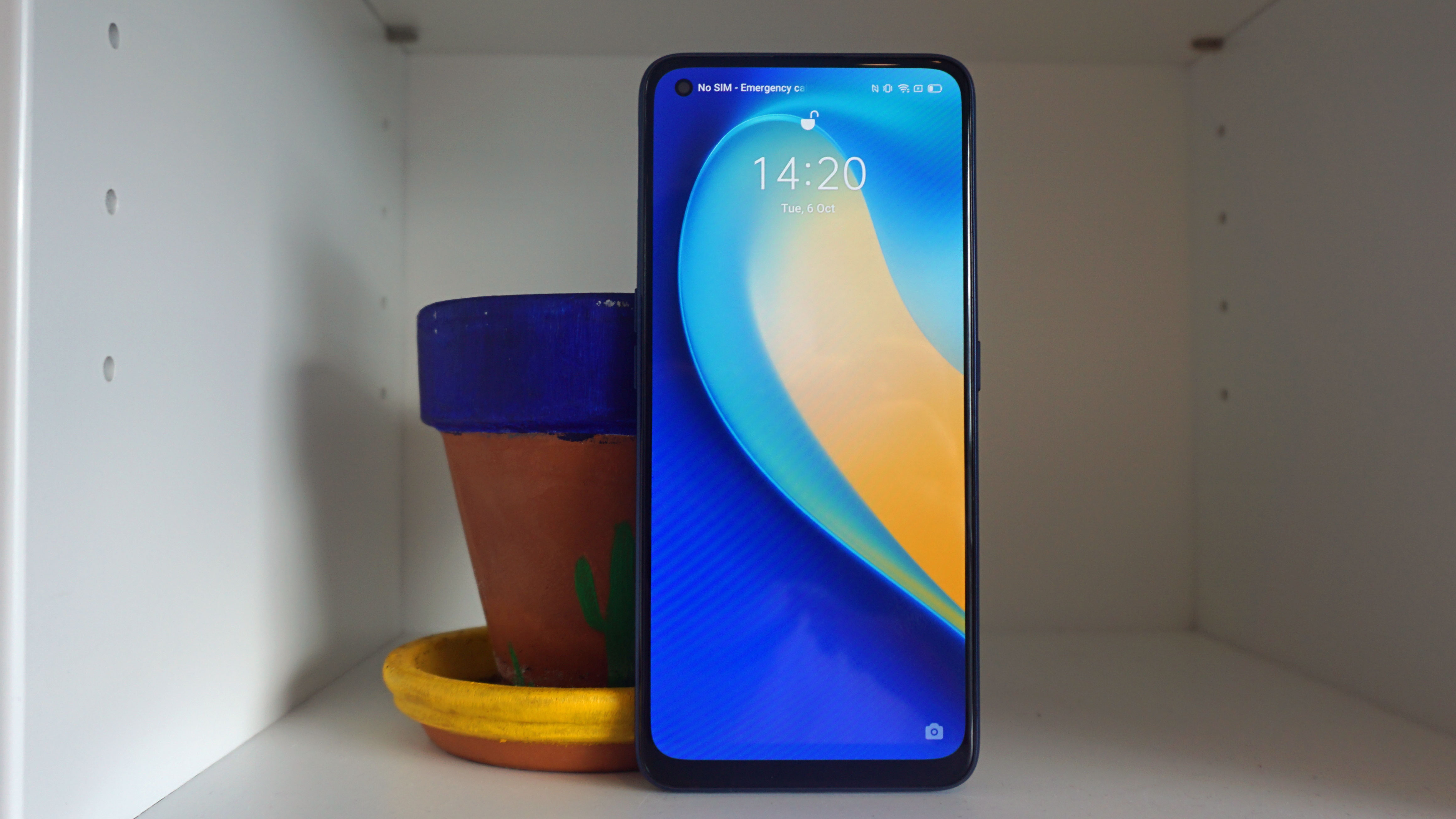
Realme UI has become a pretty polished Android skin in recent updates. Built over ColorOS 7 from Oppo (Realme's sibling company), it balances features and customizability in a way that lets users make it as personalized or minimal as they’d like.
App icons can be designed, themes can be changed, quick toggles can be reordered, an app drawer can be added, and more. Spending some time in the settings reveals many others useful tweaks. With the right choices, the interface can be made to look closer to stock Android.
Heading to the Realme Labs section of the settings also reveals experimental features that are currently being tested. On the Realme 7 Pro, this includes smooth scrolling (presumably via MEMC - a motion smoothing effect), super night time standby to reduce idle drain at night, and DC dimming.
Battery life
- 4,500mAh battery offers decent life
- Superfast 65W charging
The Realme 7 Pro has a 4,500mAh battery, which - combined with the Realme UI optimizations - results in pretty good battery life.
The phone almost always lasted us through to the end of the day with 5 to 7 hours of screen-on time and moderately heavy usage. This use typically involves Wi-Fi or data on all day, about 2 hours of media consumption and music, tons of push notifications and social media, some calls, and a bit of gaming.
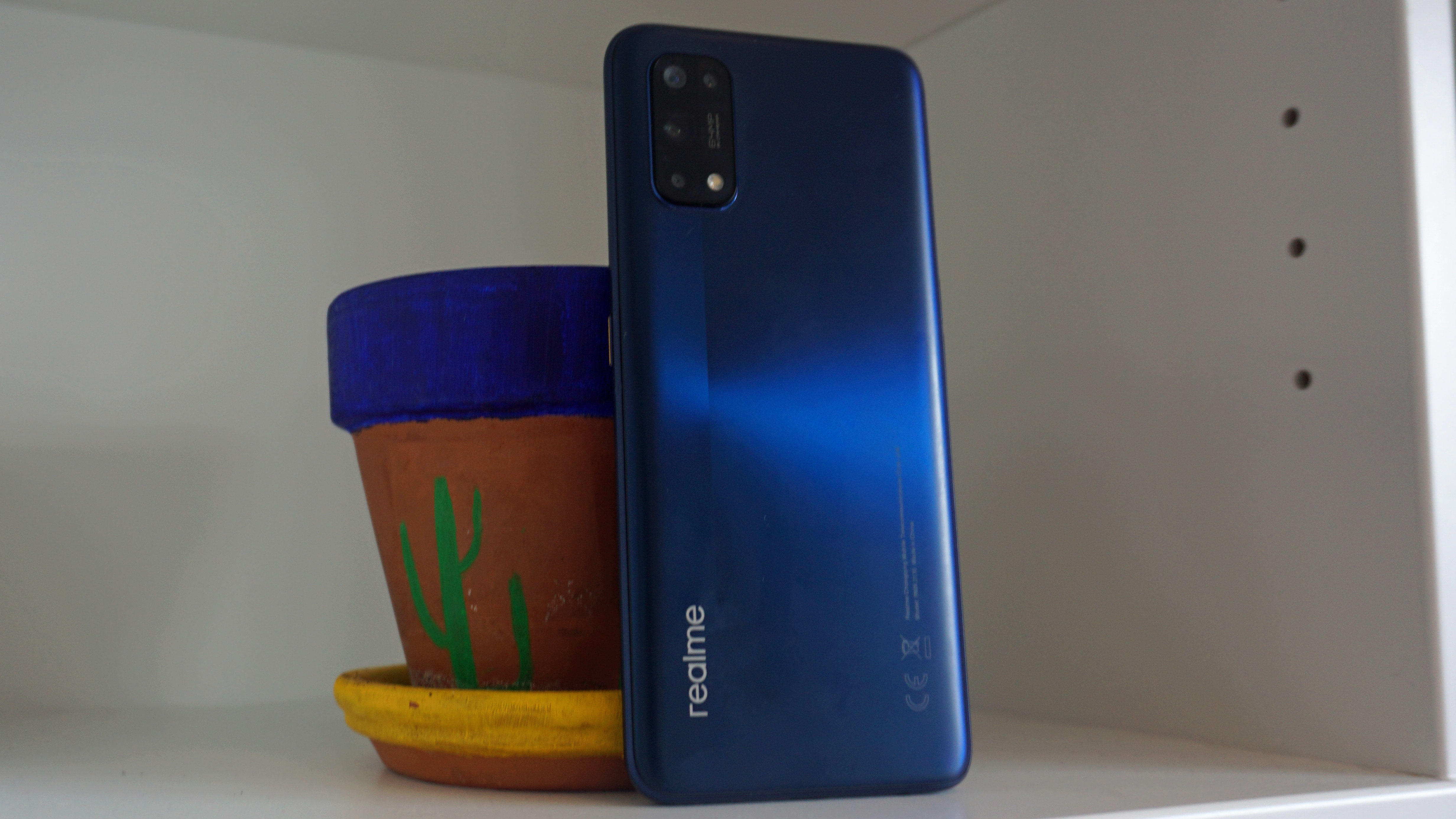
If your own level of use is similar or less then you should find the Realme 7 Pro battery life is fine for you - if you're an intensive user then one of the many 5,000mAh battery phones might be better for you.
It’s in the charging department where the Realme 7 Pro reveals possibly its best feature though. The handset supports 65W 'Super Dart' charging (with a compatible charger included in the box), beating most flagships in this regard.
It takes only about 35 minutes to charge the phone from empty, so you can get your phone powered for a whole day in the time it takes you to have your morning shower.
A five-minute top-up would take the battery to almost 25%, making it rather easy to get to the end of the day if you ever run the risk of running out early. However, there's no wireless charging.
Should I buy the Realme 7 Pro?

Buy it if...
You need a reliable battery
Not only does the Realme 7 Pro offer good battery life, but it also brings impressive charging speeds that really change usage habits. It’s addictive just to see how fast the phone charges!
Cameras are a high priority
Many phones now offer quad-lens cameras in this segment, but the Realme 7 Pro’s are among of the best and most reliable ones. Just point, shoot, and you can be confident that you'll get a good quality image back.
You consume a lot of content
The Super AMOLED display combined with the stereo speaker setup and the headphone jack make the Realme 7 Pro a rare combination in today’s smartphone world.
Don't buy it if...
You can hold on a little longer
The budget smartphone segment is extremely competitive, with great new offerings every month. With the festive season around the corner at the time of writing, we expect a lot of new competition and offers on older devices.
You really need a high refresh rate display
To keep the price under control, the Realme 7 Pro had to move down to a 60Hz display. If that is not a compromise you’re willing to make, look elsewhere.
You want a premium build
The Realme 7 Pro looks good, but with its plastic back it doesn't feel high-end. This is the sort of sacrifice we expect at this end of the market, but if you want premium materials you'll need to look elsewhere.
First reviewed: October 2020
Aakash is the engine that keeps TechRadar India running, using his experience and ideas to help consumers get to the right products via reviews, buying guides and explainers. Apart from phones, computers and cameras, he is obsessed with electric vehicles.
